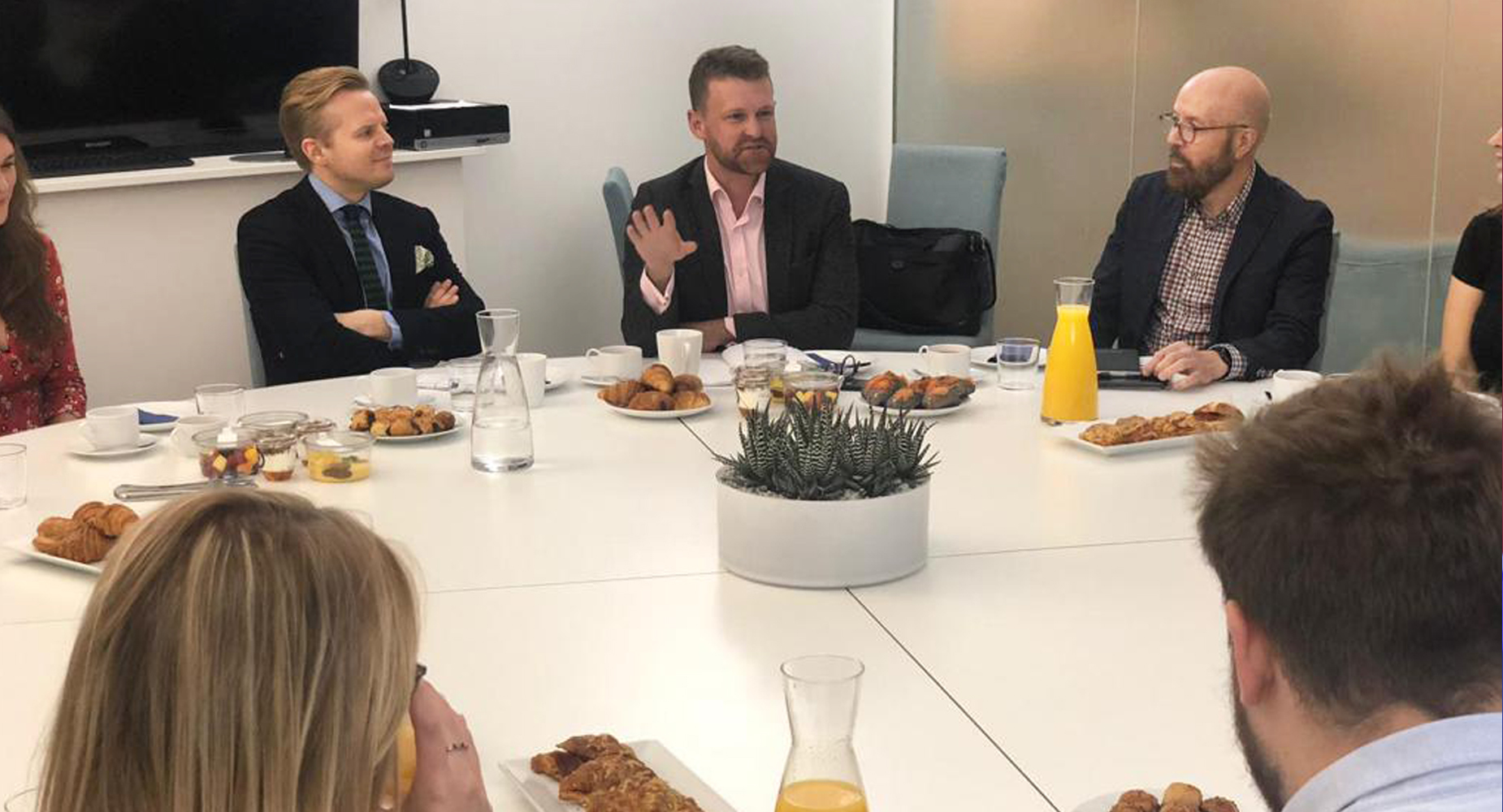We were fortunate to be joined by Tom McTague, Staff Writer at The Atlantic, who recently began working for the US magazine here in London after a decade in the Westminster lobby. Tom treated our guests to his unique insight what it’s like to write for America’s oldest magazine, the changing nature of journalism and why all Brexit roads lead to a General Election.
Ben Stetson reports on the highlights:
1. Bringing America’s oldest magazine to new audiences
The Atlantic has been published almost every month in the United States since 1857. Neither aligned with any political party nor a regular endorser of political leaders, the magazine has sought to influence public discourse by publishing new ideas and challenge old ones. In 2019, it hired three reporters – an editor and two staff writers – to emanate the style of their US counterparts working from a small office in Soho. The intention was not to create a European or British version of the magazine but to extend its editorial presence with characteristic long reads and in-depth features on British politics and society.
Tom was joined by the equally-impressive Helen Lewis (formerly of the New Statesman) to grow its presence in the UK. Rather than reporting on individual stories on a day-to-day basis, they examine issues in greater detail asking broader questions about the implications of individual events.
2. Challenging the 24-hour news cycle
Tom’s excitement about his role is partially rooted in distancing himself from the 24-hour news cycle. Since he has not been required to feed that beast every day, he has reflected on the trends in journalism and particularly in Britain. Speaking with old colleagues in the Westminster lobby, he’s noticing a new trend about what constitutes good quality journalism.
Whereas in the past publishing the latest hot take may have given your report an edge, many journalists recognise that similar day-to-day stories are published everywhere. In fact, Tom reflected that the best journalism is now found in the headline grabbing well-sourced exclusives or the well-researched long reads unpacking issues in greater detail.
3. British and American journalism: compare and contrast
By immersing himself in a new style and culture of journalism, Tom noticed a few stark differences between writers on either side of the Atlantic Ocean, notably the attitude to humour. American journalism is underlined by a degree of seriousness and deference. Traditionally, you will not find a cartoon or sketch in a mainstream quality news outlet. Contrast that to a daily paper in the UK where our lobby journalists, sketch writers and even editorial leader writers indulge themselves in schadenfreude rather frequently.
4. Brexit: all roads lead to a General Election
After publishing his book on the 2017 General Election, our guests were eager to hear Tom’s predictions and speculations about how the first phase of Brexit negotiations might conclude. He recalled a conversation with a Government source strategising and gaming out quite how these negotiations could end without a national poll. However, and here’s where it becomes complex, Tom was comfortable to admit that the partisan realignment from 2017 that swallowed up UKIP and the Liberal Democrats is just not a permanent feature of British politics.
5. Behind No.10: No-dealers v deal
There may be a national poll in November or in the New Year but what is happening in Number 10 now to get a deal over the line?
Tom told us about two factions. These are not competing tribes but two silos within Downing Street committed to their individual objectives. The Vote Leave alumni are indelibly focused on delivering Brexit by October 31st, an ambition reflected in the communications strategy above everything else. But behind closed doors intricate minds are working on technical solutions to the Irish Border. As the breakfast concluded, we were led to believe that an offer from the Boris Government might just be impending. Now, we’re told our partners in Brussels are in receipt of Britain’s alternative solutions to the backstop.




